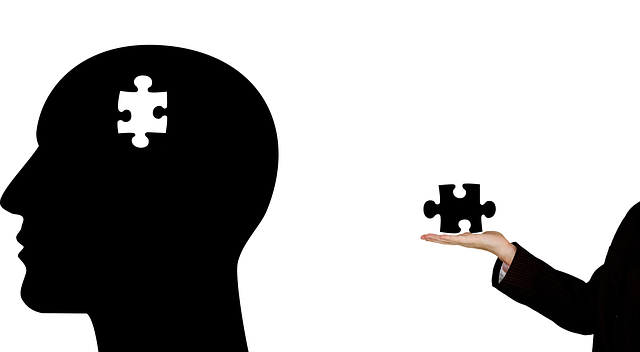Loss, grief, and bereavement significantly impact young adults' mental health, making understanding and addressing these emotions crucial. Therapy for Young Adults provides a safe space to process complex feelings like sadness, anger, and guilt, fostering resilience through evidence-based practices like compassion cultivation and mental wellness journaling. Psychological testing identifies unique challenges, including depression or trauma, guiding therapists in offering tailored solutions. This holistic approach, combined with community outreach programs, enhances emotional regulation, enables healing, and empowers young adults to navigate their grief journey effectively.
Loss, grief, and bereavement counseling are essential tools for young adults navigating emotional trauma. This article delves into the unique challenges they face when dealing with these profound experiences. We explore strategies tailored specifically for young adults, focusing on therapy as a powerful catalyst for processing sadness and trauma. Furthermore, we discuss psychological testing methods that aid in their emotional healing journey. By understanding their perspective, we can enhance counseling sessions, offering effective support during trying times.
- Understanding Loss, Grief, and Bereavement: A Young Adult's Perspective
- The Role of Therapy in Processing Sadness and Trauma
- Psychological Testing for Emotional Healing
- Strategies for Effective Counseling Sessions with Young Adults
Understanding Loss, Grief, and Bereavement: A Young Adult's Perspective

Loss, grief, and bereavement are profound emotional experiences that can significantly impact young adults’ mental health and overall well-being. Understanding these complex feelings is a crucial step towards healing and recovery. When a young person faces the loss of a loved one, they may experience a range of emotions, including sadness, anger, guilt, and confusion. These reactions are all part of the natural grieving process, which can be both challenging and transformative. Many individuals struggle to cope with these intense feelings, leading them to seek therapy for young adults as a means of support.
Psychological testing is a valuable tool in assessing and understanding an individual’s emotional state during this difficult time. Through specialized assessments, mental health professionals can gain insights into a person’s coping mechanisms, underlying mood disorders, or risk factors that may require additional interventions such as mindfulness meditation techniques to enhance resilience. It’s important for young adults to know that seeking help is not a sign of weakness but rather an act of self-care and strength. With the right support, including therapy and psychological testing, individuals can navigate these uncharted waters, develop effective coping strategies, and begin the process of healing and finding meaning in their loss.
The Role of Therapy in Processing Sadness and Trauma

The process of processing sadness and trauma that arises from loss, grief, or bereavement can be immensely facilitated through therapy. For young adults navigating these complex emotions, professional support is invaluable. Therapy provides a safe and non-judgmental space for individuals to explore their feelings, gain insights into their coping mechanisms, and develop healthier strategies for managing distress. Through psychological testing and tailored interventions, therapists can identify specific challenges and offer evidence-based solutions.
Incorporating emotional well-being promotion techniques, such as compassion cultivation practices and mental wellness journaling exercises, can significantly enhance the therapeutic experience. These tools empower individuals to cultivate self-compassion, foster resilience, and nurture a deeper understanding of their own emotional landscapes. By engaging in these practices regularly, young adults can better manage their grief, promote healing, and reclaim a sense of balance in their lives.
Psychological Testing for Emotional Healing

Psychological testing plays a significant role in loss grief and bereavement counseling for young adults. Through specialized assessments, therapists can gain valuable insights into an individual’s emotional state, cognitive processes, and coping mechanisms. These tests help identify underlying issues such as depression, anxiety, or trauma that may be complicating the grieving process. By understanding these factors, therapy for young adults can be tailored to address specific needs, promoting inner strength development and fostering mental wellness.
Community outreach program implementation often incorporates psychological testing as a tool for comprehensive support. By assessing participants’ emotional health, counselors can design interventions that enhance resilience and facilitate healing. This holistic approach combines therapy with community resources, ensuring individuals receive the necessary tools to navigate their grief and build lasting coping strategies.
Strategies for Effective Counseling Sessions with Young Adults

Counseling young adults experiencing loss, grief, and bereavement requires tailored strategies to meet their unique needs. Starting by creating a safe and non-judgmental space is essential; many young adults may feel uncomfortable discussing their emotions openly, so building trust and rapport is crucial. Encouraging active participation through open-ended questions allows them to express their feelings and thoughts freely. Incorporating psychological testing can provide valuable insights into the individual’s emotional state and coping mechanisms, helping counselors tailor interventions effectively.
Additionally, integrating techniques from the Mental Wellness Podcast Series Production can enhance counseling sessions. Sharing relevant stories and experiences from the community outreach program implementation can make young adults feel understood and connected. The goal is to foster emotional regulation by teaching healthy coping strategies, such as mindfulness exercises or cognitive-behavioral techniques, empowering them to navigate their grief journey with greater resilience.
Loss, grief, and bereavement counseling play a pivotal role in helping young adults navigate emotional landscapes post-loss. By combining therapy with psychological testing, counselors can facilitate meaningful processing of sadness and trauma, ultimately fostering resilience. Strategies tailored to this demographic, as highlighted in the article, offer effective avenues for healing. For young adults seeking guidance during challenging times, these evidence-based approaches ensure support and a path toward emotional recovery.














